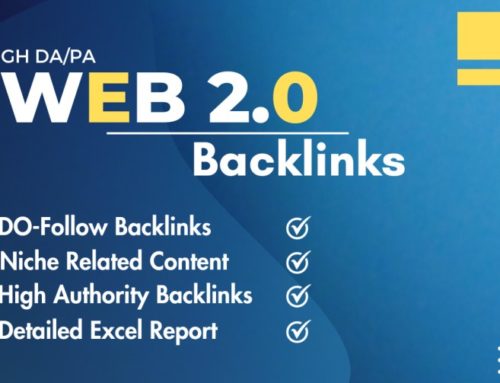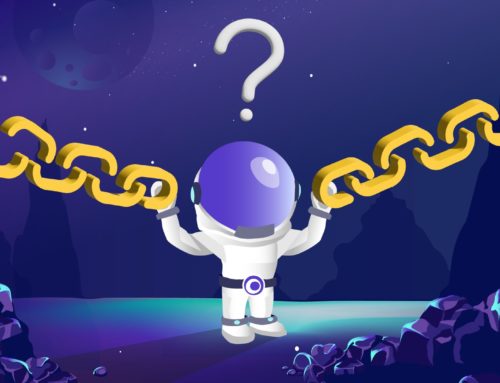Creating a network of PBN backlinks can be a risky business. The tempting combination of “cheap” and “fast” often leads down a troublesome path. Those offering inexpensive links thrive on this risky venture, turning it into a cash cow. Yet, for solo webmasters, managing numerous websites is a time-consuming task. In this guide, we will discuss the risks and offer people who buy PBN backlinks cheap a better and safer alternative to rank high.
What Are PBN Backlinks?
So, what’s the deal with PBN backlinks? PBN is short for “private blog network.” Here’s the scoop: people snag a bunch of expired domains, whip up some basic content, and connect the sites. After that, they link the chosen website to the one they’re eager to boost in rankings. Imagine it like this—a PBN is a bit like connecting the dots in the online world.
Why People Buy Backlinks
People buy backlinks for various reasons. Here are the main ones:
- Improving Rankings on Search Engine: Links are vital to search engine algorithms. Websites with more high-quality backlinks usually rank higher in search results. By buying backlinks, people can boost their site’s authority and improve its rankings.
- Faster Results: Building a natural backlink profile through legitimate means, such as creating valuable content, outreach, and networking, takes time and effort. Some individuals or businesses may buy backlinks to achieve quicker results.
- Competitive Edge: Businesses may feel pressure to keep up with competitors engaging in questionable practices in competitive industries. The fear of falling behind can lead some to buy backlinks to stay competitive.
- Lack of SEO Knowledge: Some website owners may not fully understand the complexities of search engine optimization (SEO) and might be lured by the promise of quick results without realizing the potential consequences.
- Influence on Domain Authority: Backlinks contribute to a website’s domain authority, a metric that indicates a site’s overall strength and trustworthiness. Buying backlinks might be seen as a way to artificially inflate domain authority.
What happens when you buy PBN backlinks cheap?
Google shows its clever side. For solo website owners running a PBN, the mystery lies in how Google uncovers PBNs. Some hints suggest it might be one or a mix of these clues:
- All the websites share a similar technical setup (like using the same CMS or design).
- They share a common technological foundation (such as having similar IP addresses).
- Similar lines of code are frequently used.
- All the websites were once expired domains.
Now, let’s peek into the consequences of mass-producing PBNs.
To tackle this challenge, you must either remove the websites manually or go through a disavow process. Regrettably, bouncing back from a manual penalty is quite time-consuming. Restoring the traffic can pose some difficulties even if you remove the links.
If you rely on a backlinking service, they might incorporate PBN links to meet their constant demand. While you may not be shelling out $150 each time on a big scale that attracts a manual penalty, just one problematic link could set off that penalty.
Better Alternatives for Site Owners Who Buy PBN Backlinks Cheap
We’ve come up with an improved solution to tackle your backlinking concerns. Our method allows for scalable backlink building to enhance your rankings quickly and safely, avoiding the threat of a Google Penalty. Here’s the breakdown:
- Share three URLs from your site and your target keywords.
- We create relevant content and publish it on reputable websites.
- Ensuring these articles link to crucial pages on your site is our priority.
- We go the extra mile to secure backlinks for the posts we create.
Our approach is natural, steering clear of Private Blog Networks (PBNs) and utilizing ranking signals to protect your web pages from penalties.
Are you curious about our core backlink packages? Contact us to learn how they work.
FAQs
Q1: Are PBNs considered a legitimate SEO strategy?
A: No, PBNs are generally considered a black hat SEO strategy. Search engines like Google consider using PBNs to be against their guidelines, as they manipulate search results and can lead to an unfair advantage in rankings.
Q2: Can PBNs be effective for improving SEO?
A: While PBNs can provide short-term improvements in search engine rankings, the risks associated with their use outweigh the potential benefits. Search engines are becoming increasingly sophisticated in detecting manipulative tactics, and using PBNs can damage a website’s online presence long-term.
Q3: How can search engines detect PBNs?
A: Search engines use advanced algorithms and machine learning to detect patterns and anomalies indicative of PBN usage. They may look for similarities in hosting, IP addresses, content, or link patterns among websites. If a network of sites is found to be interconnected and used solely for link manipulation, penalties may be imposed.
Q4: Are there legal implications associated with PBNs?
A: While using PBNs may not have direct legal implications, it is against the terms of service of most search engines. If a website is penalized for using PBNs, it can severely affect its online visibility and business. Additionally, using PBNs to deceive users or engage in fraudulent activities could have legal repercussions. It’s essential to prioritize ethical and legal SEO practices.



